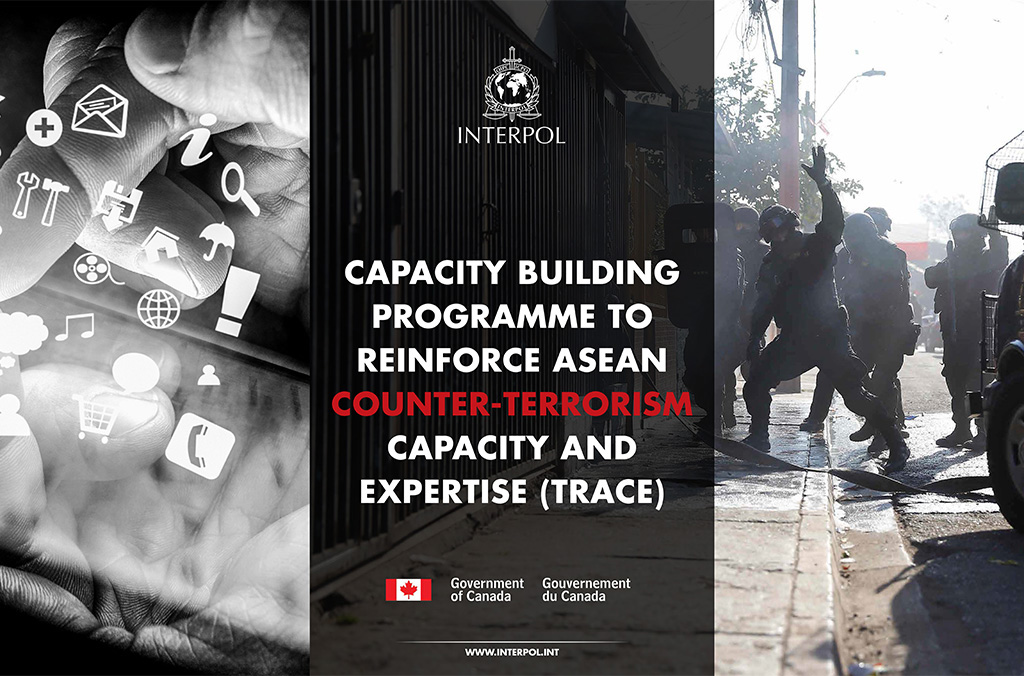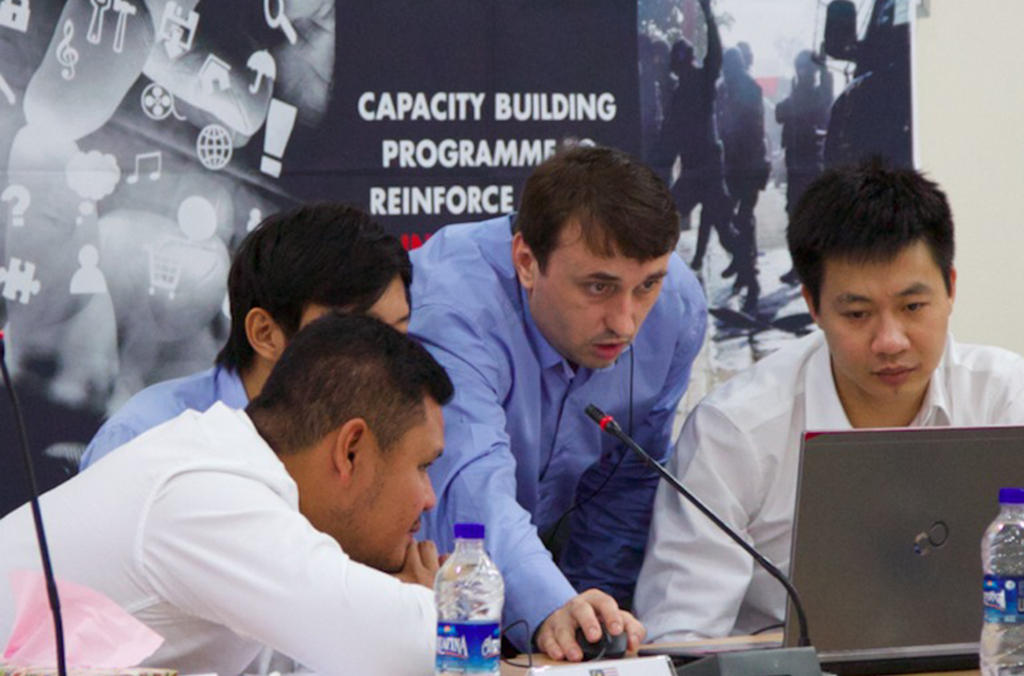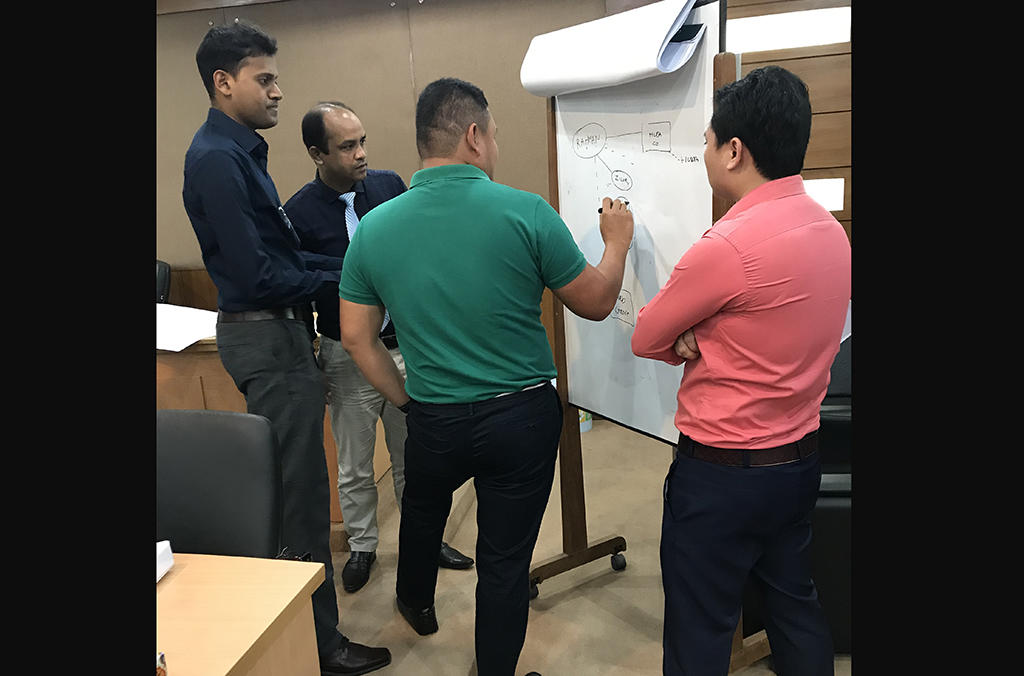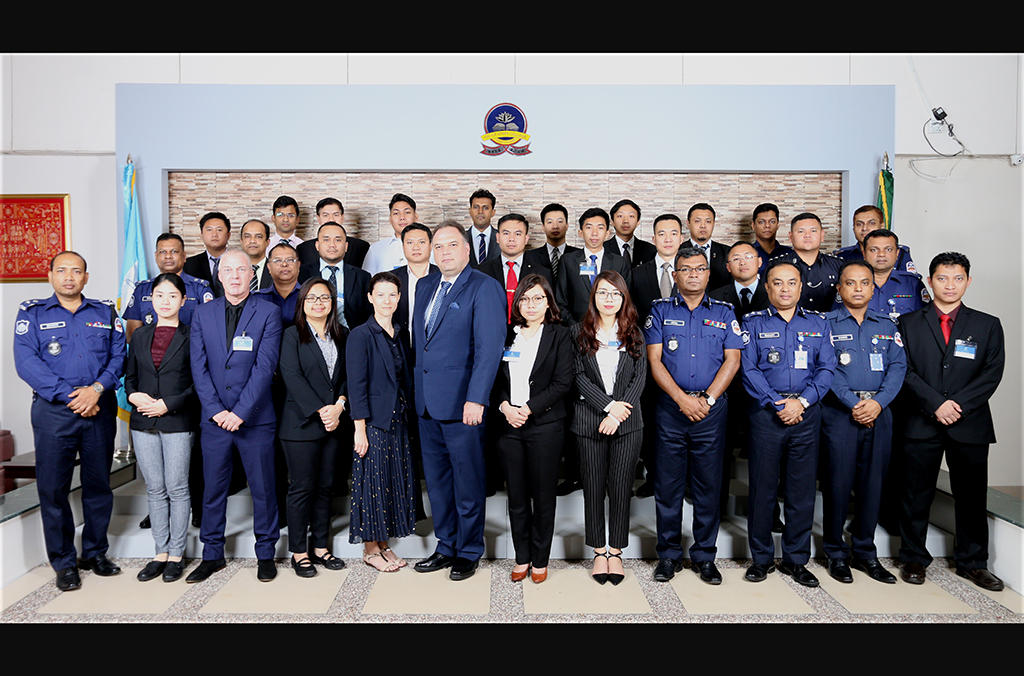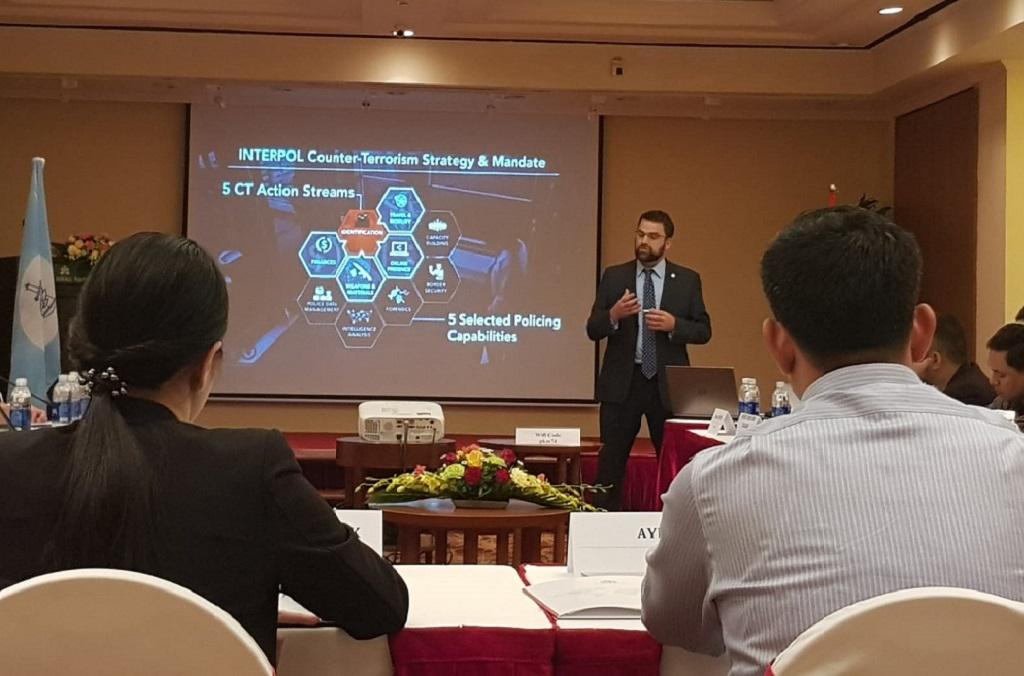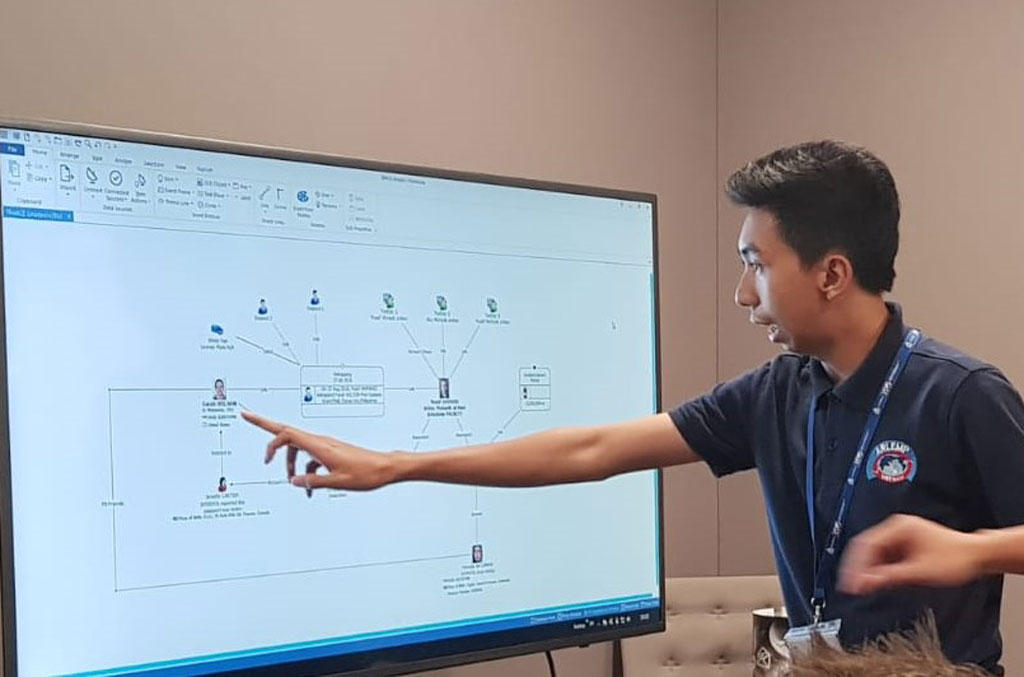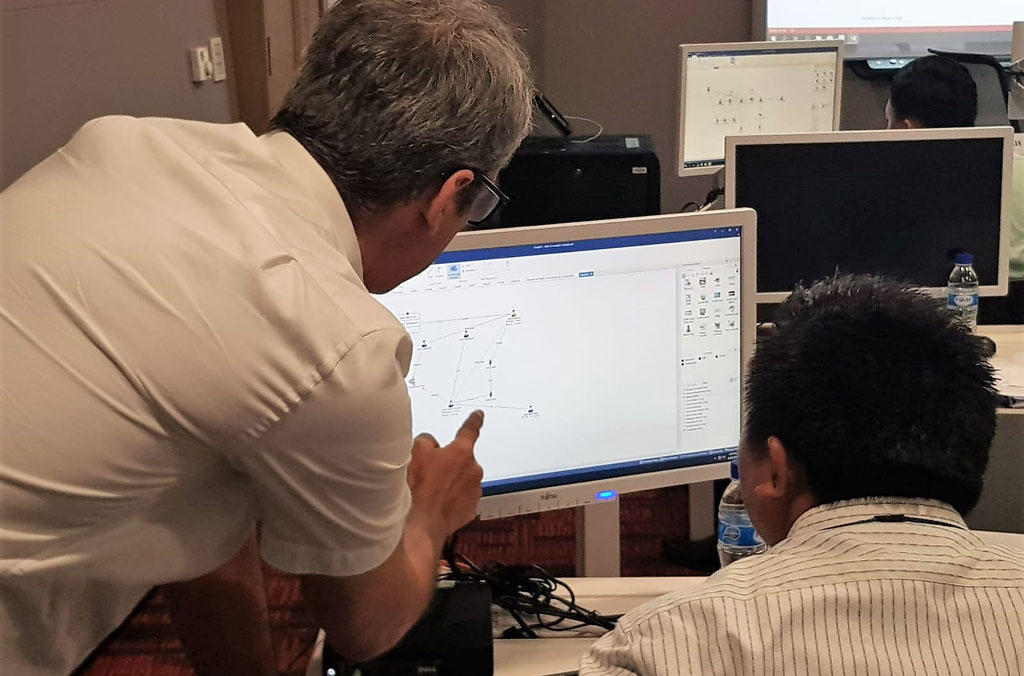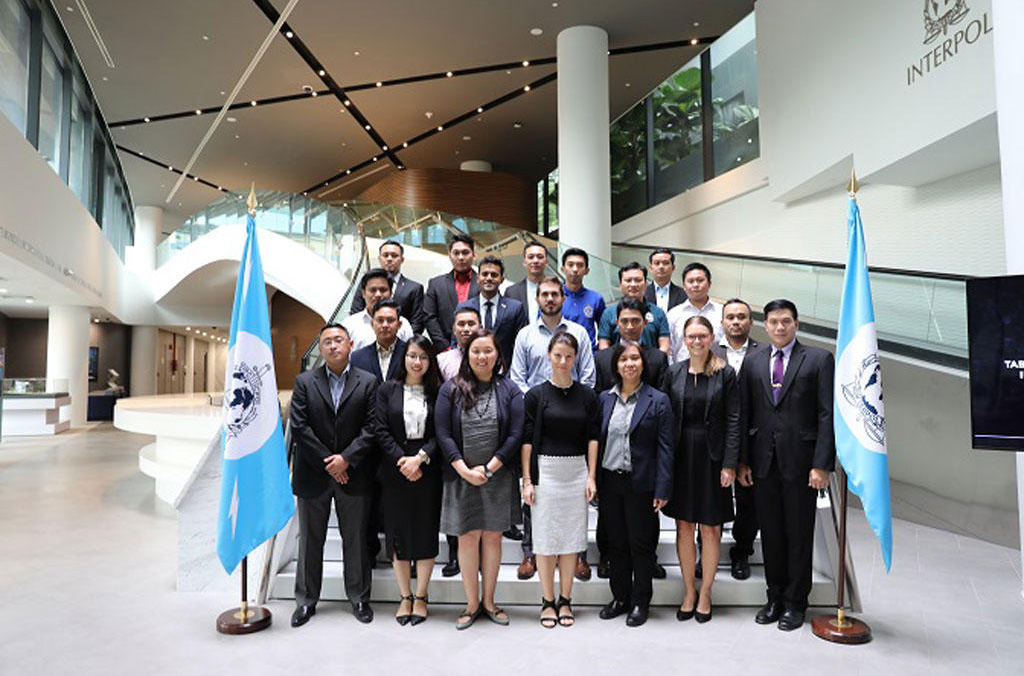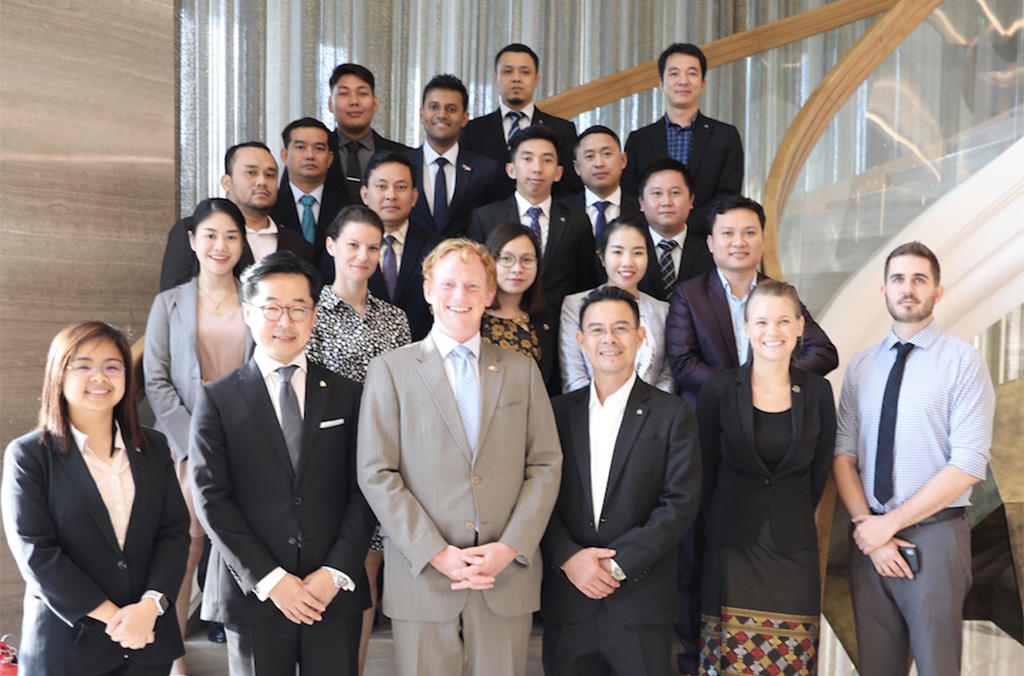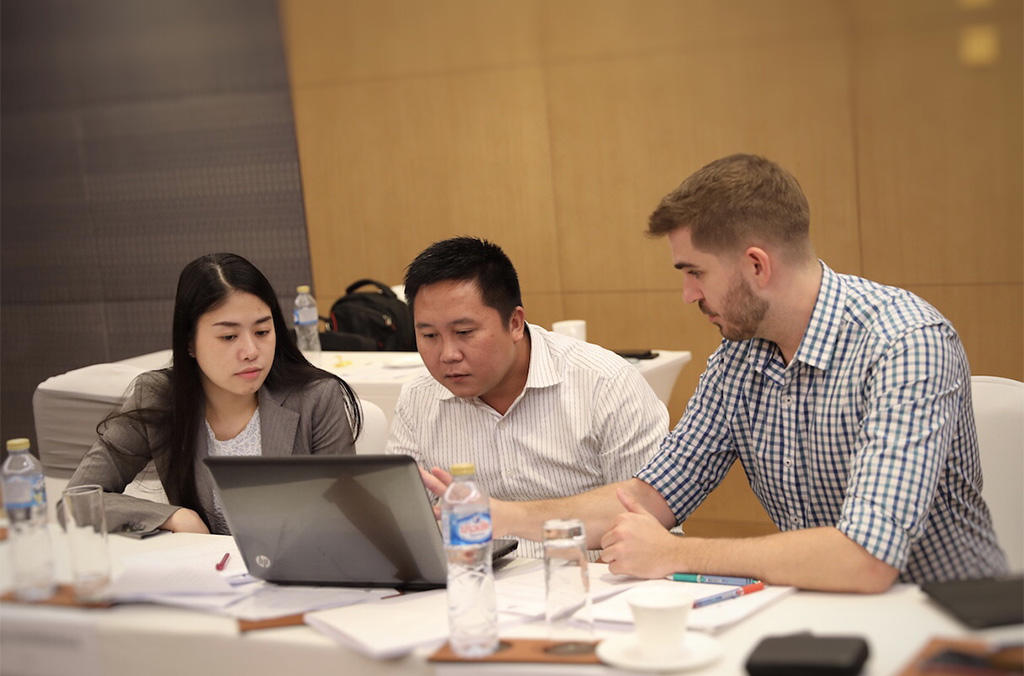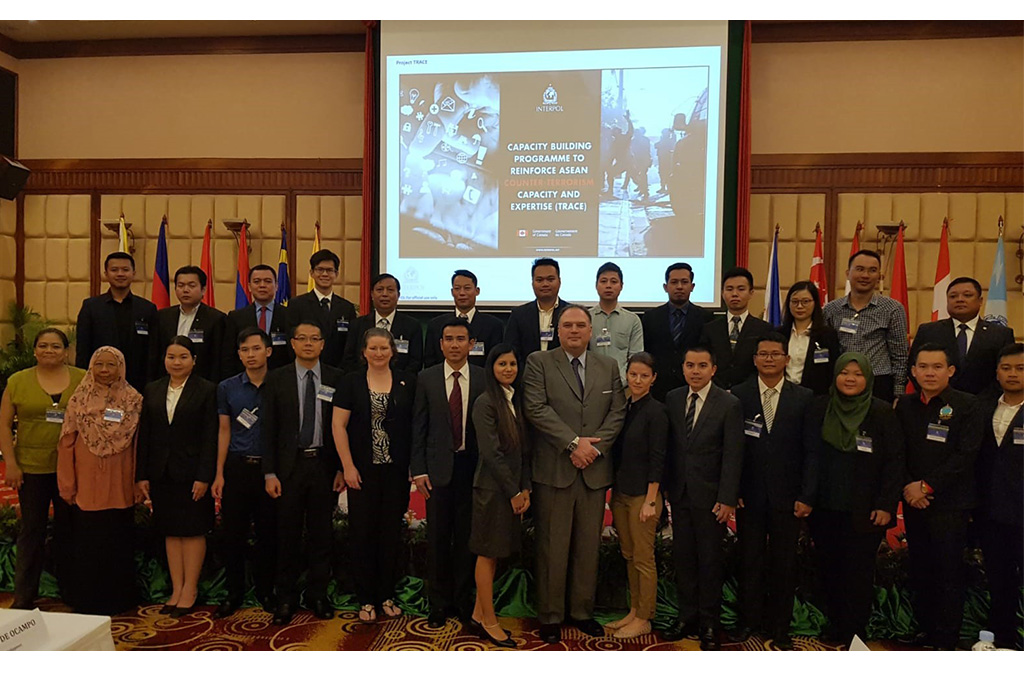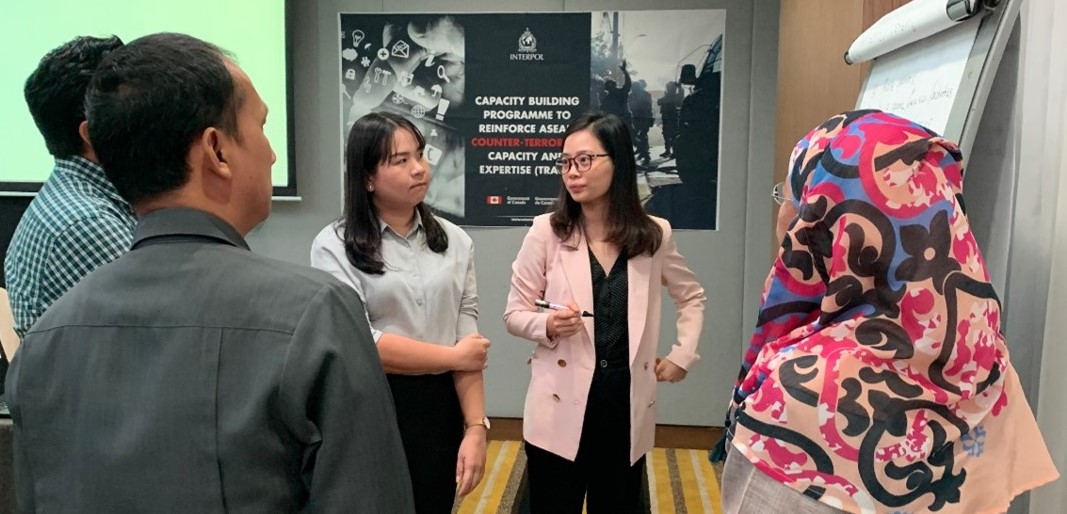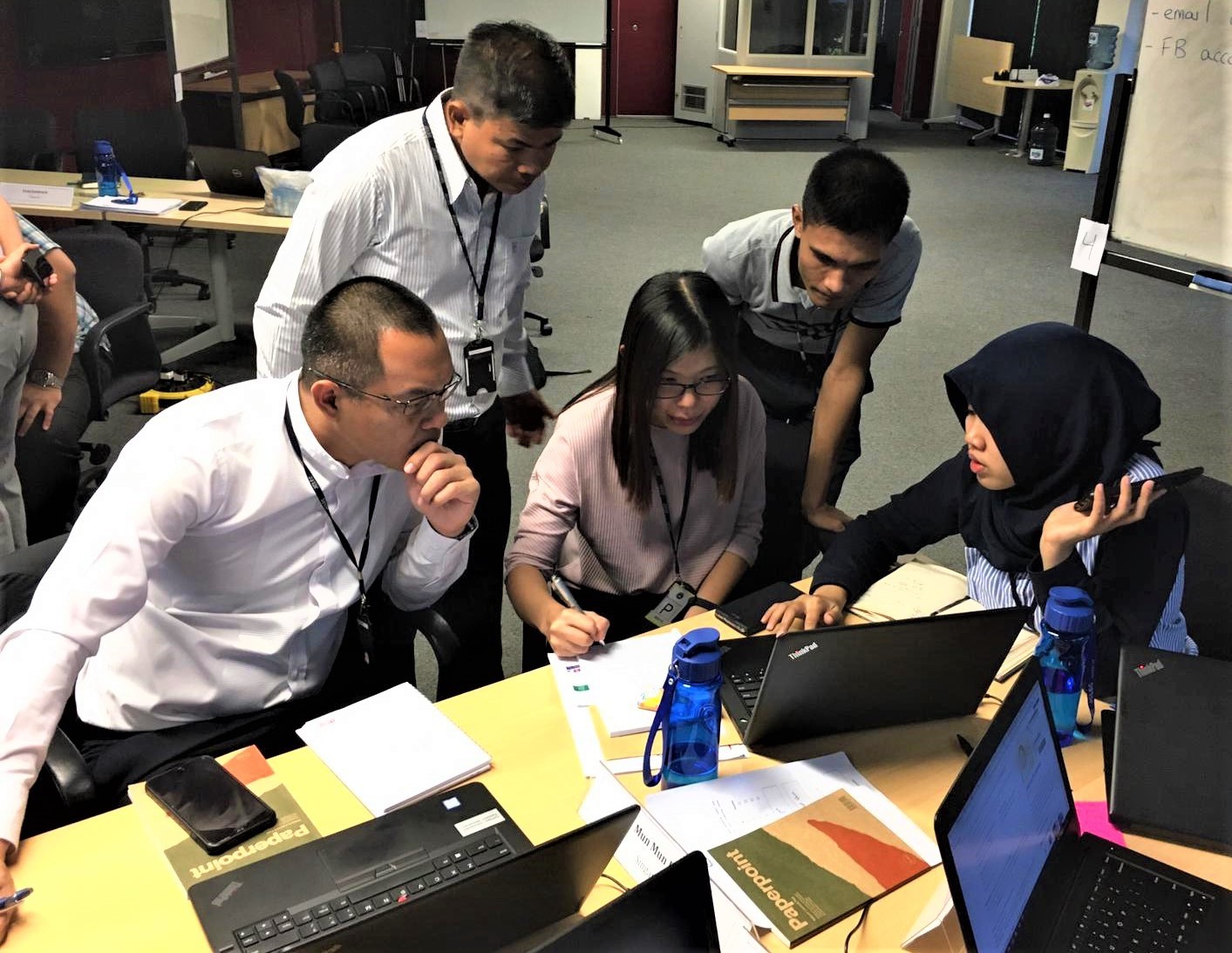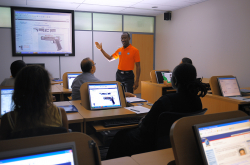Timeframe: August 2017 to February 2021
Budget: EUR 2 million
Donor: Global Affairs Canada
Project summary
Project Trace works to reinforce counter-terrorism capacity and expertise in the 10 countries of the Association of Southeast Asian Nations (ASEAN): Brunei, Cambodia, Indonesia, Laos, Malaysia, Myanmar, Philippines, Singapore, Thailand and Vietnam.
Initially a three-year initiative (2017-2020), it has been extended until February 2021.
The Project targets officers from national counter-terrorism units, intelligence and investigation officers from cyber units, and any other national agencies responsible for investigating and combating the use of Internet for terrorism purposes.
Project Trace has equipped participants with the skills, tools and methodologies needed in order to gather and exploit information from online platforms, including social media, for counter-terrorism investigations.
Project activities
Training activities are conducted over three cycles, each targeting a different group of participants.
Each cycle comprises the following activities:
- One-week Basic Training on Countering the Use of Internet for Terrorism Purposes;
- One-week Advanced Training on Countering the Use of Internet for Terrorism Purposes;
- Software donation and specialized software training;
- Train-the-trainer session;
- Table-top exercise to provide participants with hands-on experience.
Five objectives underpin each of the activities:
- Understanding how open source intelligence (OSINT) and social media intelligence (SOCMINT) streams can be used as part of criminal investigations;
- Understanding how to use INTERPOL’s policing capabilities, including the different types of INTERPOL databases and notices;
- Understanding the correct techniques for capturing and securing digital evidence;
- Using charting techniques as a tool to assist in analysis;
- Understanding how to request information from third parties (INTERPOL, other law enforcement agencies, Internet service providers, telecom companies, etc.).
Online training
Despite the global coronavirus pandemic, Project Trace has continued to deliver training to the region through two Small Private Online courses.
The first – the E-Evidence Bootcamp – ran for eight weeks from June to August 2020. The course demystifies the concepts behind electronic evidence and enables participants to better determine the authenticity, reliability and integrity of digital evidence.
A total of 49 law enforcement officials completed this third iteration of the course, which was originally developed in 2019 in collaboration with University College Dublin - Digital Forensic Investigation Research Laboratory (DigitalFIRE).
The second online course – Fundamentals of Open Source Investigations – has been newly developed by the Project Trace team. It increases the skill and ability of law enforcement investigators to conduct open source investigations in a safe and efficient manner. The course ran over six weeks, from October to December 2020, with a total of 107 participants.
Both courses form part of INTERPOL’s Virtual Academy, a digital learning platform that comprises recorded lectures, self-paced study material, live-webinars, and exercises.
Project oversight
A Steering Committee, composed of one representative of each beneficiary country, oversees the implementation of the project. Its role is to advise on and endorse the various project activities so as to maximize participation and ensure sustainable outcomes.




